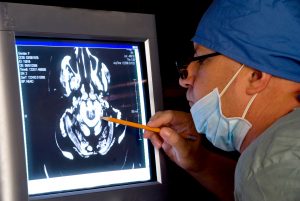 Everyone is hoping for the miracle cure that can stop the progression of Alzheimer’s disease and dementia. Significant research resources are aimed at finding this miracle cure to help the estimated 16 million people expected to become afflicted with Alzheimer’s by 2050.
Everyone is hoping for the miracle cure that can stop the progression of Alzheimer’s disease and dementia. Significant research resources are aimed at finding this miracle cure to help the estimated 16 million people expected to become afflicted with Alzheimer’s by 2050.
But Alzheimer’s disease is not an inevitability for all older people, even those considered to be at high risk. While some risk factors cannot be reversed, such as aging or having a family history of Alzheimer’s, other factors can be addressed.
Decades of research have improved how we understand and diagnose Alzheimer’s, which has led to the exploration of many possible drug therapies to address the symptoms of the disease. But according to researchers from the University of Alabama at Birmingham, new insights have also led scientists to understand that early prevention could potentially stop or slow the development of Alzheimer’s.
With advances in imaging technology able to detect the amyloid plaque buildup in the brain believed to be the hallmark of Alzheimer’s, even before the development of outward symptoms, doctors can now employ prevention strategies before symptoms develop. The University of Alabama at Birmingham is currently exploring therapies to reduce amyloid buildup in the brains of individuals who do not yet exhibit symptoms of Alzheimer’s. Additionally, a number of studies have shown that some risk factors for developing Alzheimer’s include high blood pressure and cholesterol levels and lack of physical activity. These are clearly factors that can be addressed to reduce the risks of developing Alzheimer’s.
By reducing risk factors through a combination of new drug therapies and lifestyle changes, there is hope that fewer of us will be facing the prospect of developing Alzheimer’s as we all inevitably age.
You can learn more about the trials being conducted by theUniversity of Alabama at Birmingham by clicking here.
